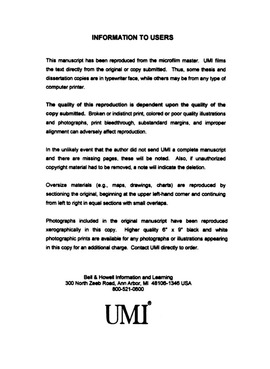| dc.contributor.advisor | Elugardo, Reinaldo, | en_US |
| dc.contributor.author | Cox, Edward Thomas. | en_US |
| dc.date.accessioned | 2013-08-16T12:30:58Z | |
| dc.date.available | 2013-08-16T12:30:58Z | |
| dc.date.issued | 2000 | en_US |
| dc.identifier.uri | https://hdl.handle.net/11244/5995 | |
| dc.description.abstract | The premise that leads to the problem for Nonreductive Physicalism is the Exclusion Principle itself. The Exclusion Principle, naively conceived, is false. The naive Exclusion Principle excludes as causally irrelevant events or properties that intuitively appear to be relevant. (Abstract shortened by UMI.) | en_US |
| dc.description.abstract | The problem of mental causation, in the form of the Exclusion Argument, affects any variety of dualism or Nonreductive Physicalism. I argue for a solution to the problem of mental causation for Nonreductive Physicalism. | en_US |
| dc.description.abstract | Next I argue that the mental is causally relevant, so the Exclusion Argument is unsound. Epiphenomenalism is not readily shown to be false, as some philosophers would claim. | en_US |
| dc.description.abstract | I set up the most perspicuous version of the Exclusion Argument for the purpose of determining which premises are necessary for the argument and finding any important relations among the premises assumed in different versions of the argument. In this way I avoid focusing on questions irrelevant to the core issues of the Exclusion Argument. | en_US |
| dc.description.abstract | Finally, I consider the most plausible attempts to solve the problem of mental causation. The most plausible theories of mental causation assume a dual-explanandum or two explananda view, but such views are inconsistent with the Exclusion Argument. | en_US |
| dc.description.abstract | The conclusion, Epiphenomenalism, follows from these broadly physicalist assumptions. The physical is determined only by the physical, so the mental cannot determine the physical. The mental is also completely determined by the physical, so the mental cannot determine the mental. Thus, the mental has no causal work to do. Since the physical completely determines everything, the mental can determine nothing. This sketch is the essence of any version of the Exclusion Argument. | en_US |
| dc.description.abstract | The Exclusion Argument consists of a broadly physicalist set of theses, with a different variant for each variety of dualism. These theses are the following: (1) Dualism. The mental and physical are real. (2) Irreducibility. The mental is not type-identical to the physical. (3) Supervenience. The mental is determined by the physical. (4) Causal Closure of the Physical. The physical is closed to causal influence from anything nonphysical. (5) Exclusion Principle. If there is one complete, independent cause (or causally relevant property), then there is no other cause (or causally relevant property). (6) Therefore, Epiphenomenalism. The mental is causally irrelevant. | en_US |
| dc.format.extent | ix, 237 leaves : | en_US |
| dc.subject | Philosophy of mind. | en_US |
| dc.subject | Causation Psychological aspects. | en_US |
| dc.subject | Metaphysics. | en_US |
| dc.subject | Philosophy. | en_US |
| dc.subject | Mind and body. | en_US |
| dc.title | Minds, causes and the exclusion argument. | en_US |
| dc.type | Thesis | en_US |
| dc.thesis.degree | Ph.D. | en_US |
| dc.thesis.degreeDiscipline | Department of Philosophy | en_US |
| dc.note | Major Professor: Reinaldo Elugardo. | en_US |
| dc.note | Source: Dissertation Abstracts International, Volume: 61-06, Section: A, page: 2328. | en_US |
| ou.identifier | (UMI)AAI9975798 | en_US |
| ou.group | College of Arts and Sciences::Department of Philosophy | |
